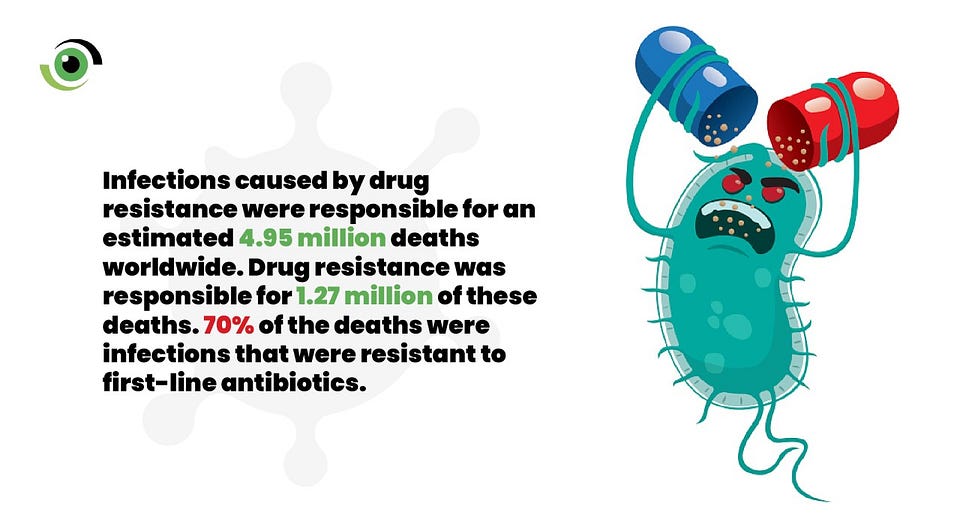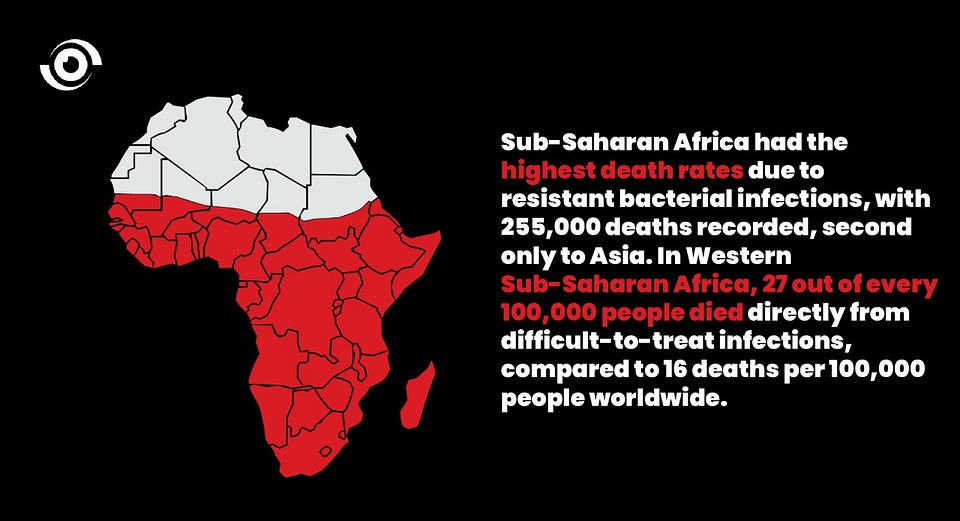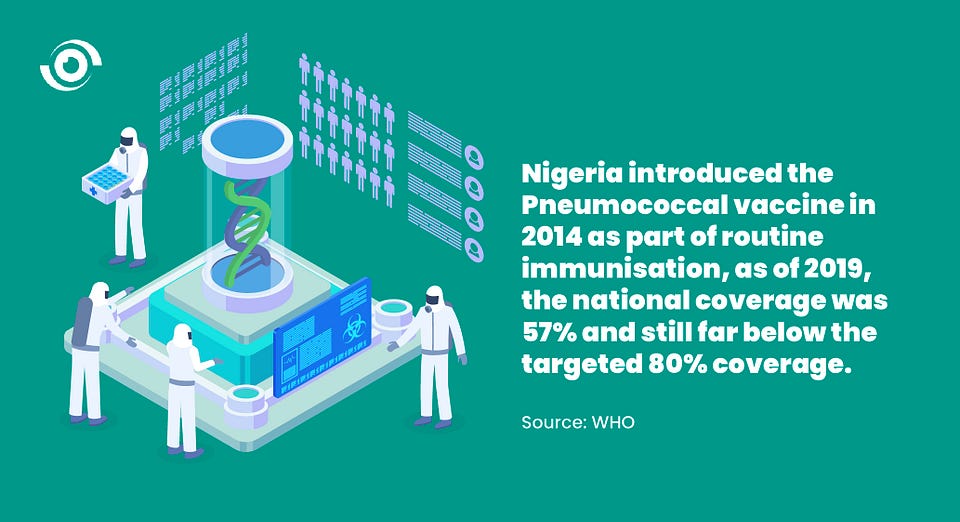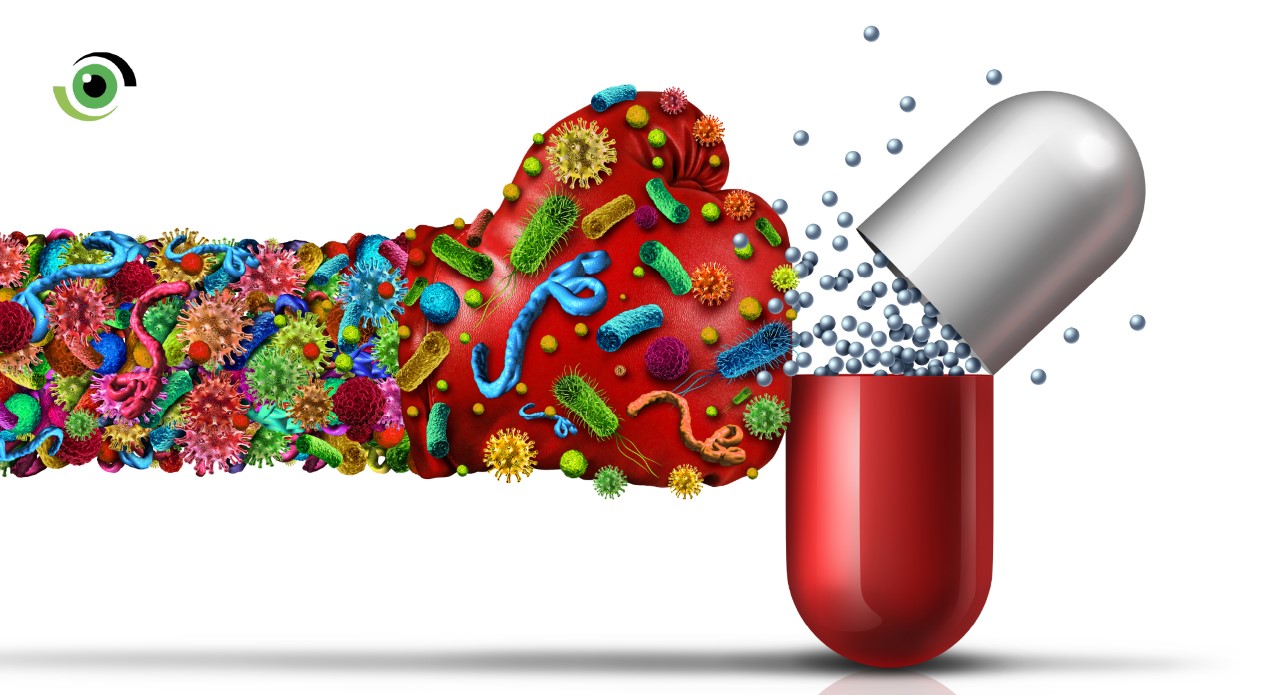By Dr Abiodun Egwuenu (Lead Writer)
Editor’s Note: This week’s Thought Leadership piece is a commentary on the Global Research on AntiMicrobial resistance (GRAM) Project written by Dr Abiodun Egwuenu, a Field Epidemiologist and Antimicrobial Resistance Programme Manager with the Nigeria Centre for Disease Control (NCDC). It is the first comprehensive global estimate of the burden of AMR, ever undertaken and she writes about the implications of the study results for Nigeria and steps that should be taken to mitigate the threat of AMR to human health.
Antimicrobial Resistance (AMR) is a major threat to global health. The World Health Organization (WHO) has declared it as one of the top 10 global public health threats confronting humanity. However, because the impact is slow and often in conflict with economic interests, it is unrecognised and does not receive the attention it needs from public health leaders. This new study brings the burden of AMR to the world and to Nigeria, and there are many lessons to be learnt.
AMR occurs when the pathogens (bacteria, virus or fungus) that cause infections resist the effects of the medicines used to treat them. If the spread of AMR is left unchecked, it could reverse the gains made since the discovery of antibiotics, leading to antimicrobials (e.g antibiotics) becoming increasingly ineffective in treating common diseases.
The GRAM Study
Due to the fact that the spread of AMR occurs mostly unnoticed, AMR cannot be effectively tackled if its true burden of resistance is unknown. Therefore, in 2019, the Global Research on Antimicrobial Resistance (GRAM) was launched to generate accurate and timely estimates of the magnitude and trends of AMR burden across the world. The study, published on the 20th of January, 2022, and funded by the Bill & Melinda Gates Foundation, Wellcome Trust and Fleming Fund, highlighted the impact of hard-to-treat infections in western Sub-Saharan countries, including Nigeria.
Given the lack of good surveillance for AMR in many countries, this study used multiple data sources including microbiology results, inpatient records, multiple causes of death, and sales data from pharmaceutical companies and diagnostic laboratories. It also included data retrieved through clinical trials from high-quality published studies and data from research institutes and public health institutes performing diagnostic testing and managing surveillance networks. The data was acquired during a four year study period.
This is the first comprehensive global estimate of the burden of AMR, ever undertaken.
The Current state of AMR globally
Globally, an estimated 4.95 million deaths were associated with drug-resistant infections (directly and indirectly), with 1.27 million of these deaths directly attributable to drug resistance. This means that over one million people died because their infections could not be treated by any available medicines, as a result of resistance. Seventy percent of the deaths that occurred were from serious infections no longer responding to first-line antibiotics used for empirical treatment.

The highest death rates occurred in sub-Saharan Africa with 255,000 deaths recorded as attributable to resistant bacterial infections, second only to Asia. In Western sub-Saharan Africa, 27 of every 100,000 persons died directly from hard-to-treat infections compared to 16 deaths per 100,000 persons globally. Streptococcus pneumonia contributed to 15% of deaths in the region and untreatable tuberculosis is still a main cause of death.

What are the implications for Nigeria?
The GRAM study estimates that bacterial AMR would be classified as the 12th leading cause of death, ahead of HIV and malaria. Most of these deaths could have been prevented if antibiotics were working as effectively as they should. The tragedy of the situation in Nigeria is that the most common bacterium causing death is preventable by vaccination. While Nigeria introduced the Pneumococcal vaccine in 2014 as part of routine immunisation, as of 2019, the national coverage was 57% and still far below the targeted 80% coverage. High immunisation coverage rates would minimise the use of antibiotics in our country, where medicines are accessible without prescriptions and laboratory based diagnosis is not routine.

Nigeria prioritised AMR as a national health issue in 2016 and since then a One Health governance structure has been set up to prevent, detect and respond to hard-to-treat infections in humans and animals within the shared environment. A five-year National Action Plan, published in 2017, led by the Nigeria Centre for Disease Control (NCDC) details Nigeria’s response plans in collaboration with the Federal Ministries of Agriculture and Environment.
Infection prevention and control (IPC) is also critical to limiting the spread of hard-to-treat infections both in the community and in hospitals. This is achievable through the widespread implementation of programmes focused on hand hygiene and access to water, sanitation and hygiene (WASH) services. IPC is essential for a country like Nigeria which is in a region with a high AMR burden and there has been a push by non-profit organisations like DRASA Health Trust, partnering with the government to train health workers.
Building laboratory capacity, both infrastructure and human resources, is essential to enable the detection of hard-to-treat infections and targeted treatment. Since 2017, the AMR Technical Working Group and Coordinating Committee, led by the NCDC has received several grants to improve AMR and antimicrobial use surveillance. This has supported the renovation and equipping of laboratories in several public secondary and tertiary health facilities, as well as supporting the improved quality of bacteriology data collected which is crucial in tailoring standard treatment guidelines, especially for hard-to-reach areas where laboratory diagnostic capacity for bacterial infections is minimal, poor or even non-existent.
Creating local solutions and increased advocacy
AMR poses one of the greatest threats to human health in sub-Saharan Africa. Investing in the research and development of new antibiotics and improving access to second-line antibiotics must take into account policies that ensure equitable access as well as adequate enforcement of regulations in the distribution and prescription of antibiotics. In addition, there is a need for greater patient information about the risks of antibiotic overuse and misuse, this needs to be at the heart of any advocacy effort. There appears to be a lack of understanding about the correct use of antibiotics when prescribed.
The results of the GRAM study will guide decision-making and advocacy, as well as inform our national strategy in Nigeria and facilitate the assessment of our interventions over time. More than ever, intervention strategies must be contextualised locally and multi-pronged: raising awareness, detecting hard-to-treat infections, improving infection prevention, increasing uptake of vaccines, ensuring antibiotics are accessible to all who need them and research into developing new antibiotics prioritised. Now, more than ever local funding is essential for the implementation of the National Action Plan for AMR.
Dr Abiodun Egwuenu is a Medical Doctor. She is a Field Epidemiologist and Antimicrobial Resistance Programme Manager at, Nigeria Centre for Disease Control (NCDC).She is a distinguished fellow of Improving Public Health Management for Action (IMPACT) Programme led by the US-CDC and the Nigerian Government. She is also the Fleming Fund Fellow for AMR surveillance data in Nigeria.




Thank you, excellent article. I would like to add an often overlooked issue. ‘Globally, most prescribers receive most of their prescribing information from the pharmaceutical industry and in many countries this is the only information they receive.’ World Medicines Report, WHO 2011 (there is no evidence that the situation has improved since then). The pharmaceutical industry pushes doctors and others to prescribe *more* antibiotics, and are therefore part of the problem. HIFA is campaigning for a world where every prescriber and user of medicines will have access to independent, reliable, understandable information on the full range of commonly prescribed medicines – and will know where to find it. http://www.hifa.org
Hello Neil,
Thank you for sharing this very valuable insight. It is evident that there is need for greater governance around the use of pharmaceuticals , especially in the way that pharmaceutical share information about their products with health care practitioners. Due to the fact that doctors are often seen as more knowledgeable than patients, it is often the case that patients follow the directives of their doctors without questioning or validating their diagnosis. Therefore there is a need for patient literacy especially in regards to the harmful effects of antimicrobials if mis-used or over-used.
Great Article on AMR / AMU in Nigeria. One key aspect for me is about the laboratory capacity to help detect the exact pathogens of concerns. Training of laboratorians and provision of right media and reagent may help in true treatment by the clinician.